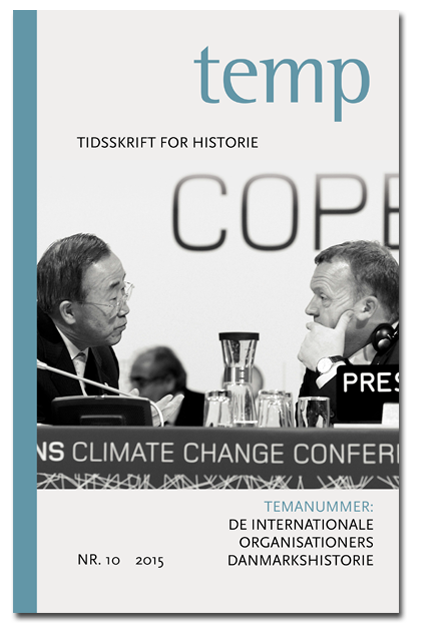Fra race til etnicitet. UNESCO og den mentale ingeniørkunst i Danmark 1945-65
Nøgleord:
UNESCO, Den Danske UNESCO-nationalkommission, internationale organisationer, virkningshistorie, antropologiens historieResumé
From Race to Ethnicity: UNESCO and Mental Engineering in Denmark, 1945-65 In wake of World War II and the Holocaust came the establishment of UNESCO as a specialized agency for education, science and culture under the auspices of the UN. For the next 20 years the Organization was the core of a dispute in international scientific circles over the correct definition of the concept of race. This was essentially a dispute about whether the natural sciences or the social sciences should take precedence in determining the origin, division and value of man. This article reveals the measures made by UNESCO to combat biological determinism and analyses – as a case study – their impact in Denmark from 1945 to 1965, when the UN adopted The International Convention on the Elimination of All Forms of Racial Discrimination. A major task for UNESCO was to issue a statement by experts containing a universal definition of race that would highlight equality and promote the culturally rooted concept of ethnicity. The organization expected that such a statement would eliminate racial prejudice and bring people together. But the impact of these efforts was slightly different, or at least slower than expected. In scientific circles, the initiatives faced some resistance but also some degree of good will, and Danish anthropologists, abandoned mental traits as criteria for racial classification and slowly engaged in human genetics, which emphasized universal problems. The fact that staff members at the Ministry of Education in the mid-1950s were deeply involved in UNESCO’s work was crucial, but it was not before 1954, that experimental education was initiated in order to promote international understanding, and that the official bias of views of Denmark as only an exporter of culture was abandoned. In 1960 the promotion of international understanding became an official Danish education policy, and with the economic support from UNESCO, textbooks and teaching methods were improved. That played a major part in imposing a new view of man and a consensus of what was perceived to be morally, scientifically and politically correct, namely that humans were to a greater extent cultural beings than they are products of nature.Downloads
Publiceret
2015-06-15
Citation/Eksport
Duedahl, P. (2015). Fra race til etnicitet. UNESCO og den mentale ingeniørkunst i Danmark 1945-65. Temp - Tidsskrift for Historie, 5(10), 34–59. Hentet fra https://tidsskrift.dk/temp/article/view/22094
Nummer
Sektion
Artikler
Licens
Copyright temp - tidsskrift for historie og forfatterne.
Artikler publiceret i Temp må citeres, downloades og videresendes for ikke-kommerciel brug, under forudsætning af normal akademisk reference til forfatter(e) samt tidsskrift, årgang, nummer og sider. Artiklerne må kun genudgives med eksplicit tilladelse fra forfatter(e) og tidsskriftet.





